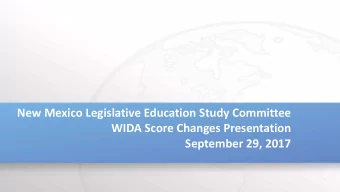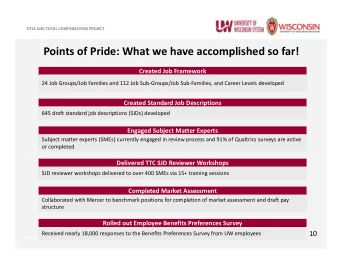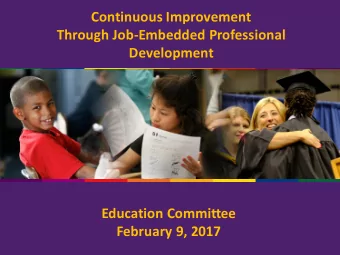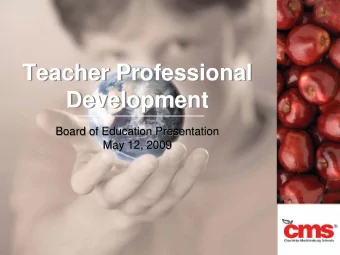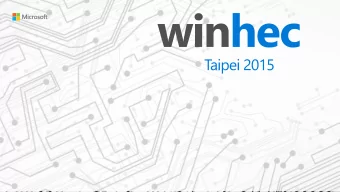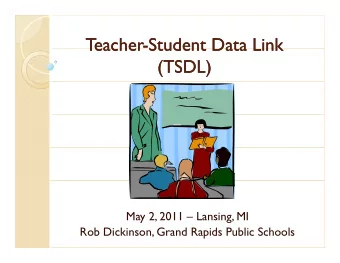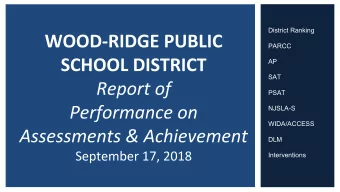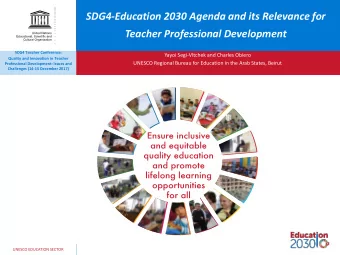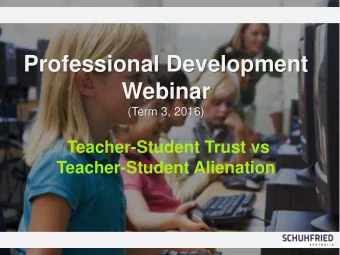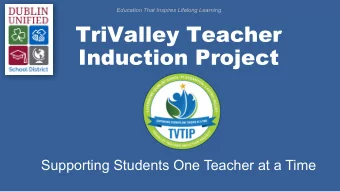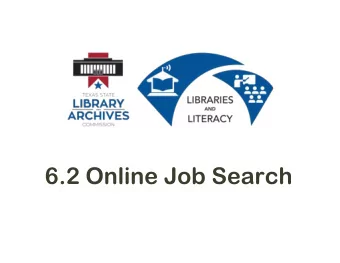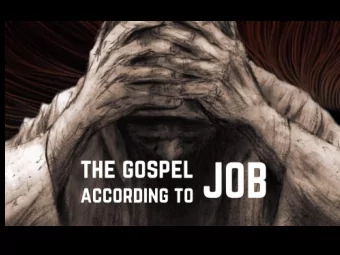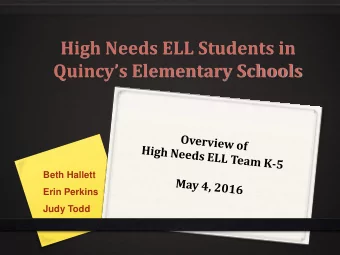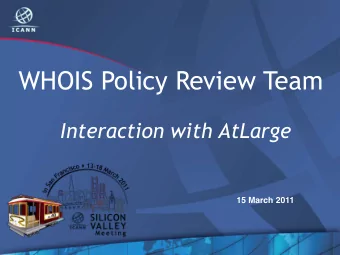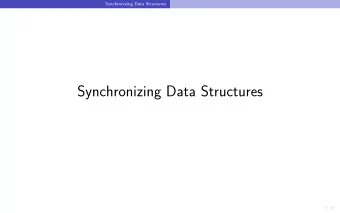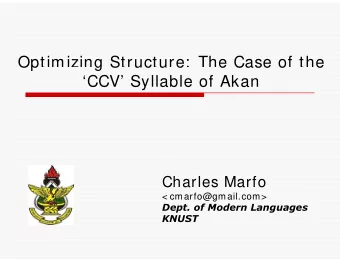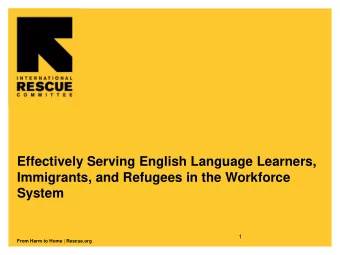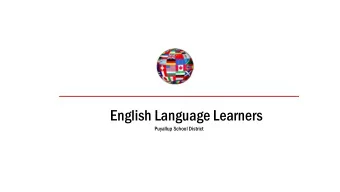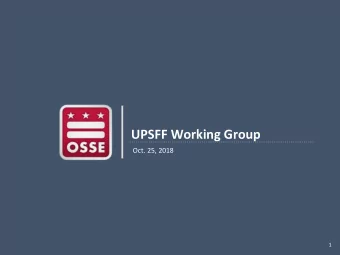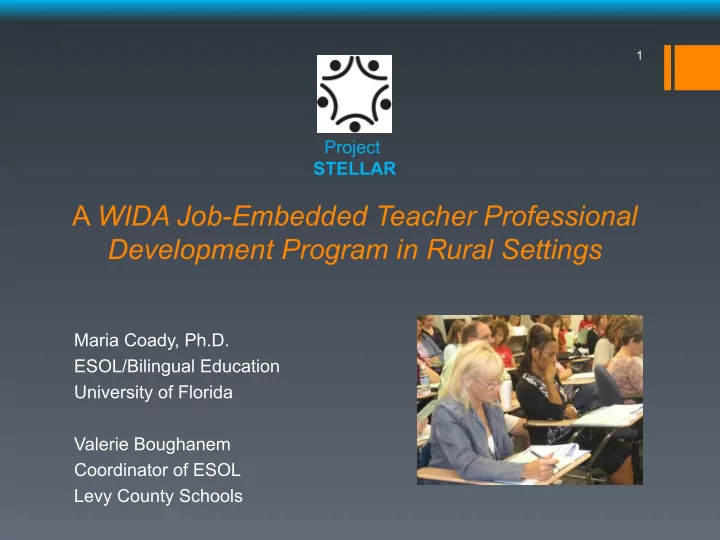
A WIDA Job-Embedded Teacher Professional Development Program in - PowerPoint PPT Presentation
1 Project STELLAR A WIDA Job-Embedded Teacher Professional Development Program in Rural Settings Maria Coady, Ph.D. ESOL/Bilingual Education University of Florida Valerie Boughanem Coordinator of ESOL Levy County Schools 2 Goals of this
1 Project STELLAR A WIDA Job-Embedded Teacher Professional Development Program in Rural Settings Maria Coady, Ph.D. ESOL/Bilingual Education University of Florida Valerie Boughanem Coordinator of ESOL Levy County Schools
2 Goals of this Presentation 1. Describe how one job-embedded teacher professional development program adapted (to) WIDA content in a rural school district setting in Florida 2. Contrast this program with your own WIDA professional development program 3. Analyze/adapt your WIDA program using insights gleaned from the presentation.
3 Overview of the Presentation I. Overview and Context of Rural Education II. Levy County (LEA) Demographics, WIDA, ELL Data III. Project STELLAR: Levy County – University of Florida Partnership o Phase I with 24 teacher-leaders o Phase II with 72 teachers and educators o Parent engagement IV. Conclusions
4 Part I: Overview and Context of Rural Education
What comes to mind when you 5 think of rural education ? 1. 2. 3. 4. 5.
6 Turn and Talk v Find a partner (or two) v Share your ideas about “rural education.” v How do these issues affect educators of English language learners?
Florida’s Adoption of WIDA 7 Timeline v June 2014 Florida adopted WIDA standards for the state v 2015 Florida began to pilot WIDA framework across several districts with the ACCESS assessment v 2015 Florida rolled out WIDA using regional PD opportunities for key district personnel. Limited PD for higher education to prepare preservice teachers. v 2017 first set of WIDA ACCESS 2.0 data available across the state.
The Florida Consent Decree: 8 Helpful or Harmful? § Since 1990, the preparation of teachers of ELLs falls under state law – the Florida Consent Decree § ALL teachers of ELLs (all teachers) must meet the following preparation requirements: § 300 hours or equivalent for teachers of English Language Arts or Reading § 60 hours or equivalent for content-area teachers § 60 hours or equivalent for school leaders, counselors, and administrators § 18 hours or equivalent for specials: PE, art, music teachers If everyone is a specialist, is anyone really a specialist?
9 Part II: Levy County (LEA) Demographics, WIDA, ELL Data
LEVY COUNTY DEMOGRAPHICS § DEMOGRAPHICS • small / rural • vast land coverage • 5 learning communities • 12 schools • 5,380 students • high poverty • growing homeless population • mobile student population • increasing mobility of teacher population • new and out-of-field • limited funding sources
ENGLISH LANGUAGE 11 LEARNERS IN LEVY COUNTY § ENGLISH LANGUAGE LEARNERS / ELLs • 200 ELLs / 4% • 5 languages • 96% Spanish-speaking • 78% in grades KG-Grade 5 • secondary ELLs arrive late in their educational career • identified as “high risk” due to achievement levels of ELLs
12 Levy County ELL Student Data ELL Data Point Scores EL Graduation Rate 42.9% Civics and US History (3 or higher) 33.3% Science/Biology 18.2% Mathematics 29.1% ELA 20.6% ACCESS 2.0 (proficient, 2017) 27%
13 TEACHERS PREPARED TO WORK WITH ELLS IN LEVY COUNTY UNDER THE FLORIDA CONSENT DECREE § Employs 323 teachers 172 elementary § § 151 secondary 18% turn-over rate § § 28 first time / new teachers § 31 veteran teachers / new to the District 124 ESOL Endorsed § § 19 ESOL Certified 44% ESOL Endorsed/Certified § § 25 / 8% out-of-field (OOF) for ESOL § 52 are in compliance for content-areas
STUDENT Listen Speak Read Write A 6 4.8 2.4 3.3 B 14 5 2.8 3.6 2.8 C 6 5.8 3 3.9 D 4 2.5 2.8 3.7 E 5.8 3.5 3.8 F 4.5 6 3.7 3.9 Levy County G 5 3 3.9 4.3 ELL H 2.7 1 1.9 1.7 ACCESS 2.0 English I 5.9 5.7 4.5 3.5 language proficiency J data 2.3 2.4 2.1 2.6 K (2016-2017) 3.5 4.6 3.9 4.1 L [students of teachers 2.8 2.4 2.1 3.1 in Project STELLAR] M 5 5.4 5 3.9 N 4 4.3 4 3.6 O 4.9 4.8 4.6 4.1 P 5 4.8 3.9 3.9 Q 3 2.1 2.5 2.8 R 2.5 1.9 2.8 2.1 S 1.9 1.9 1.9 2.3 T 3.6 4.3 2.2 1.9 U 6 4.9 5.3 3.5 V 6 4.3 3.6 3.5 5 2.3 1.9 3.7 W
15 What are some of the barriers to implementing WIDA in a small rural school district? 1. 2. 3. 4. 5.
16 Part III: Project STELLAR: Levy County – University of Florida Partnership
LEA - University Partnership over the years UF’s School of Teaching and Learning – ESOL program • 8 years with preservice teachers • Bilingual paraprofessional professional development • District / school PD on ELLs—methods and materials • Ongoing family engagement • Including adult ESL in churches, schools • Project STELLAR grant • National Professional Development grant from OELA 2016-2022
What is Project STELLAR? 18 v A five-year, National Professional Development grant from the US Department of Education to provide high quality professional development to teachers and educational leaders of English Language Learners (ELLs). v STELLAR focuses on rural educators of ELs. Rural educators and EL families face challenges in geographic and social isolation, lack of access to services related to education, social programs, community connections. v The grant will provide Professional Development to 96 educators from Levy County across two phases of engagement through Communities of Practice. A main focus of the ESOL Methods course is to prepare educators for ELLs and to build WIDA into the district by preparing teacher-leaders (ESOL “specialists”)
Project STELLAR Phases 19 § Phase I (2017-18) includes 24 educators and leaders of ELLs who will enroll in a six-course job-embedded teacher education program. Educators will have on-site support and coaching while taking six ESOL-leadership courses in the TLSI program (Teacher Leadership for School Improvement). § Guided Inquiry (Sum 2017) § ESOL Methods (Fall 2017)* WIDA § Transforming the Curriculum* § Teaching in High Poverty Rural Settings § Instructional Coaching for Enhanced Student Learning* § Teacher Leadership and School Change
20 Project STELLAR Phases § Phase II (2019-20) includes 74 additional teachers and leaders (three for each Phase I participant) who will receive coaching support. § All participants receive stipends and academic credit from UF towards a Master’s or advanced degree program. § Additionally, ELL families participate in talleres en español around issues of: § Safety (food) and immigration* § Social services § English language learning § Parent engagement (learning about school, resources, roles of personnel) § Participants in STELLAR rotate in evening programs to work with families.
Project STELLAR Logic Model 21 WIDA
22 What are some of the challenges to implementing WIDA in a small rural district?
The Challenges of Rural, ELL Parent 23 Engagement What rural educators say about families § Making them [multilingual parents and caregivers] not be fearful of coming to school for conferences or school events § Fear of school reporting them as illegal or undocumented § Families are constantly changing contact information; difficulty maintaining contact with them § Language and culture barriers. We struggle to get families that trust us. § Fear of the school environment and a sense of inability to help their offspring § Fear of deportation [for undocumented families] § How to make connections § Predetermined misconceptions of one another and language barriers § Lack of interpreters § Locating previous health and educational records § Communication barriers § Getting to know families and their backgrounds § Communication § Educational expectations § Reading out to parents § Threat of being deported is affecting students in the classroom § Fear of being different, not being accepted, and fear of their immigrant status § Socio-political context § If the parents don’t speak English, I can’t communicate concerns I have for their child
The Challenges of Rural, ELL Parent 24 Engagement What rural ELL parents say about schools § Challenges that multilingual families say they face: § Difficulty supporting my child’s education § Feeling safe § Not being able to communicate with people in my new community § Trust § Anxiety § Fear of deportation and child left abandoned. Also, not being prepared or having a plan to deal with immigration issues § Providing for family on substandard or intermittent pay § Not knowing whom to trust § Lack of knowledge about transportation § Financial concerns § Having consistent employment § Providing essentials (food, clothes, and medical) § Lack of transportation, stable jobs, money § Lack of education ourselves § Lack of transportation [repeated by another adult] § Inability to find resources that are friendly to our needs § Having to have kids translate at the store, doctor, school § Income § Exclusion § Economic difficulties § Language
25 Turn and Talk v Find a partner (or two) v What themes do you see among the educator comments? The parent comments? v What themes cut across both groups?
Recommend
More recommend
Explore More Topics
Stay informed with curated content and fresh updates.
